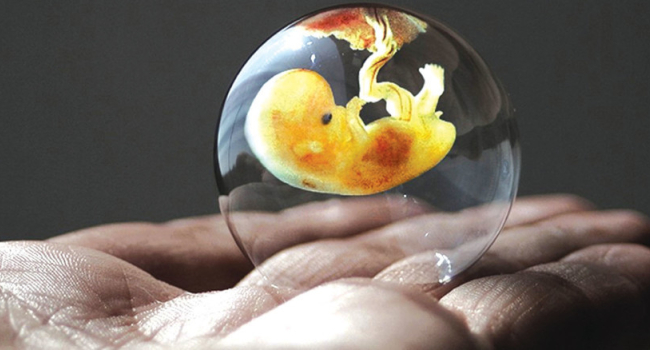The first baby in the UK conceived using DNA from three individuals has been born following a groundbreaking IVF procedure aimed at preventing the inheritance of incurable diseases. The innovative technique, called mitochondrial donation treatment (MDT), involves utilizing healthy tissue from female egg donors to generate IVF embryos that are devoid of harmful mutations carried by the mothers, which are likely to be passed on to their offspring.
By combining the sperm and egg from the biological parents with mitochondria, tiny battery-like structures found in the donor’s egg, the resulting baby inherits DNA from the mother and father as usual, along with a small amount of genetic material (approximately 37 genes) from the donor. While the term “three-parent babies” has been used to describe this process, more than 99.8% of the baby’s DNA still originates from the biological parents.
The pioneering research on MDT, also known as mitochondrial replacement therapy (MRT), was spearheaded by doctors at the Newcastle Fertility Centre in the UK. The objective was to assist women with mitochondrial mutations in having children without the risk of passing on genetic disorders. Since individuals inherit all their mitochondria exclusively from their mother, any harmful mutations within these “batteries” can impact all the children a woman may have.
For women affected by mitochondrial disorders, natural conception often becomes a gamble. Some babies may be born healthy because they only inherit a minimal proportion of mutated mitochondria. However, others may inherit a greater amount and subsequently develop severe, progressive, and often fatal diseases. Mitochondrial disorders affect approximately one in every 6,000 babies.
While the majority of a human’s 20,000 genes are located within the nucleus of nearly every cell in the body, thousands of mitochondria, each with their own genes, are dispersed throughout. Properly functioning mitochondria are vital for supplying energy to the cells composing our organs. Mutations that impair mitochondrial tend to have the greatest impact on energy-demanding tissues such as the brain, heart, muscles, and liver. In affected children, these organs can progressively deteriorate as they grow.


